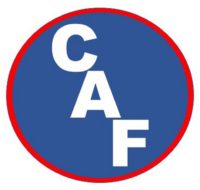Simple answer: It varies.
It’s actually a 2 part question – How long do the bubbles last and how long does the moisture last?
The visible bubble is water that has yet to be absorbed by the heat or the protected fuel. Basically, it is water in reserve, holding in place. How long the bubble lasts depends on a myriad of factors including:
How Did You Make the Foam?
- % Concentrate
- Concentrate Brand
- Type and length of hose
- Nozzle Type
- How was it applied – wet, fluid, dry, low, medium or high expansion
- The depth of application
What was the Weather?
- Temperature
- Humidity
- Wind
- Direct Sunlight
- Cloud cover
- the prior moisture level of the fuel to which the bubble was applied
- This might also include what part of the country or world – climate type – hot, cold, dry, humid
What did you put the foam on?
- Grass
- Dirt
- Asphault
- Concrete
- Structure type:
- metal
- block
- brick
- wood
Bubbles can pop (releasing the water) immediately, or within 30 minutes, or have been observed hanging around as long as 12-18 hours or more once applied.
How long the moisture lasts also depends on the same factors, but as bubbles pop, the released water will either absorb heat, soak into a dry fuel if available or might simply evaporate if no dry fuel is available.
Increasing the fuel moisture level is one of the desired effects of Class A Foam/CAF as it temporarily eliminates that available, burnable fuel (thus breaking the fire triangle). Fuels in both the structure and wildland (See WL vs Structure) arenas have been observed to remain unavailable (moist) to burn for 24-72 hours depending on how fast the atmosphere can pull that moisture back out of the fuel.
How long will straight water last? Don’t even get us started!!!
{Can add bubble pile and protected wall photos}
So what do you do? Play with it and see!!! Try all the variables that are local to your department, including time of year (different seasons) and temperatures. Note how it works in your jusridiction and train accordingly. Make sure to practice with your local variables prior to a fire – knowing what it will do and when (especially during an emergency) is what makes us great firefighters.
AND!!! You can always ask for specific suggestions and ideas by contacting an expert – ASK!!!!































